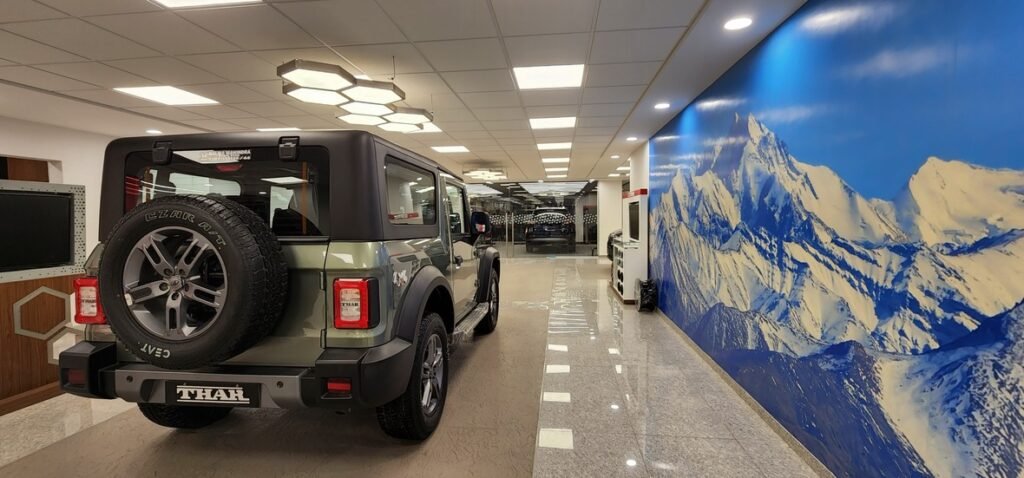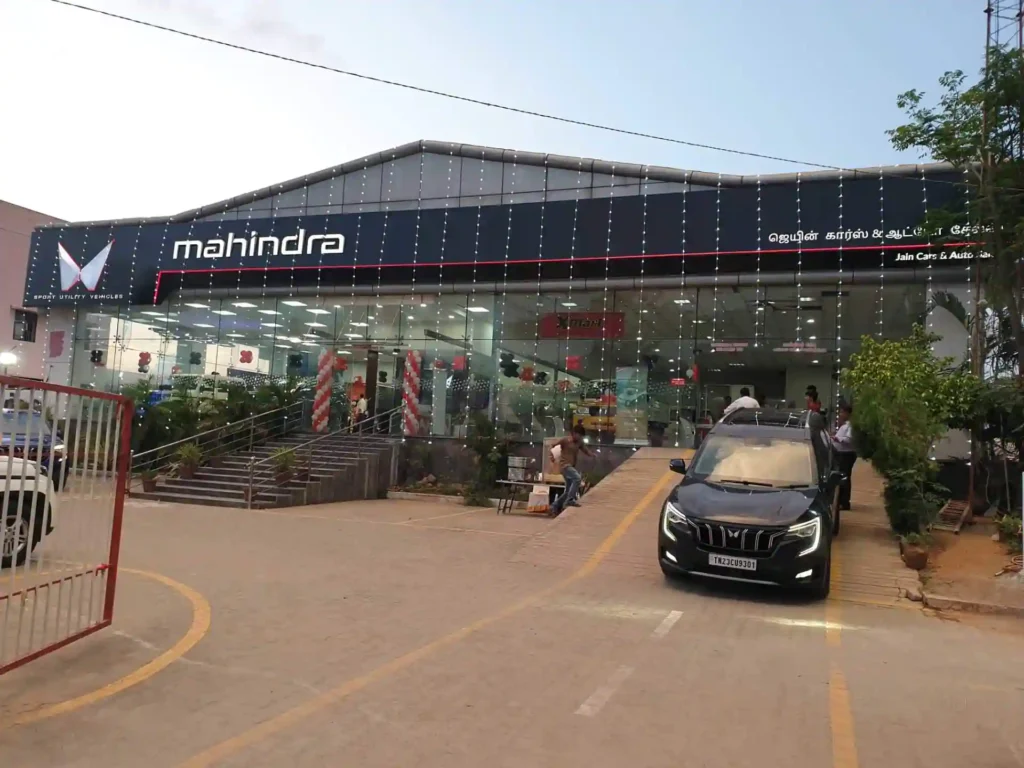The car sales report for September 2024 reveals a mixed bag for major automobile manufacturers in India, with Maruti Suzuki leading the charts yet again. Despite fluctuating demand, companies like Hyundai, Tata, Mahindra, and Toyota have managed to maintain significant sales figures. Below is an analysis of the performance of these key automakers and how their sales numbers have shaped up.

Key Highlights of September 2024 Car Sales
- Maruti Suzuki continues to dominate with a sizable market share, despite a slight dip in sales compared to the previous month.
- Hyundai Motors shows a slight recovery in sales numbers, largely due to the popularity of its SUVs.
- Mahindra & Mahindra sustains strong sales in the SUV segment, particularly with models like the Thar and XUV700.
- Tata Motors witnesses a steady performance, thanks to the consistent demand for EVs and its Nexon range.
- Toyota Kirloskar remains a strong player, driven by its hybrid offerings like the Innova Hycross and Hyryder.
Manufacturer-wise Sales Breakdown
| Manufacturer | September 2024 Sales | August 2024 Sales | YoY Growth | Key Models Contributing |
|---|---|---|---|---|
| Maruti Suzuki | 1,60,500 | 1,55,500 | +3.2% | Swift, Dzire, Baleno, Ertiga, Brezza |
| Hyundai Motors | 54,200 | 52,000 | +4.3% | Creta, Venue, Exter, Verna |
| Mahindra & Mahindra | 41,000 | 39,700 | +3.3% | Thar, XUV700, Scorpio-N |
| Tata Motors | 46,300 | 44,800 | +3.4% | Nexon, Punch, Altroz, Tiago EV |
| Toyota Kirloskar | 22,800 | 21,200 | +7.5% | Innova Hycross, Hyryder, Fortuner |
Maruti Suzuki: Leading the Pack
With sales of over 1.6 lakh units in September, Maruti Suzuki retains its top spot, commanding over 40% of the market share. The Swift, Dzire, and Baleno remain top sellers, contributing to the bulk of its sales. Maruti’s recent focus on CNG and hybrid models has paid off, catering to the demand for fuel-efficient vehicles amid rising fuel prices.
- Key Strategy: Maruti’s hybrid strategy and dominance in the affordable hatchback segment.
- Challenges: Increased competition in the SUV space from rivals like Tata and Mahindra.
Hyundai Motors: SUV Segment Drives Sales
Hyundai Motors saw a 4.3% growth in sales, with the Creta and Venue leading the charge. The recently launched Exter has also contributed to boosting numbers in the compact SUV segment. Hyundai’s strategy of focusing on SUVs has helped it maintain a strong market position, appealing to a broad customer base.
- Key Models: Creta, Venue, Exter, Verna.
- Outlook: Hyundai’s strong presence in the SUV segment is expected to fuel further growth in the coming months.
Mahindra & Mahindra: Strong SUV Focus
Mahindra continues to build on its SUV legacy, with models like the Thar and XUV700 keeping the brand in the top three. Sales growth of 3.3% in September shows Mahindra’s capability to keep up with demand, especially in the rural and adventure vehicle segments.
- SUV Domination: Thar and XUV700 continue to dominate in their respective segments, with the Scorpio-N gaining momentum.
- Upcoming Models: With more SUVs in the pipeline, Mahindra’s SUV-centric portfolio looks robust.
Tata Motors: Steady Demand for EVs and SUVs
Tata Motors recorded a 3.4% increase in sales, driven by the success of the Nexon, Punch, and the growing EV portfolio. The Nexon EV, in particular, has made Tata a leader in the electric vehicle space, appealing to environmentally conscious consumers.
- EV Revolution: Tata’s success in the EV market is noteworthy, with models like the Tiago EV and Tigor EV driving growth.
- SUV & Compact Success: The Punch and Altroz continue to attract buyers in the compact segment.
Toyota Kirloskar: Hybrid Models Boost Sales
Toyota recorded a 7.5% YoY growth, largely due to the success of hybrid models like the Innova Hycross and the Hyryder. The Fortuner remains a favorite in the premium SUV segment, contributing significantly to Toyota’s sales.
- Hybrid Leadership: Toyota’s focus on hybrid technology sets it apart from competitors, especially with its efficient models like the Innova Hycross.
- Sustained Growth: With hybrids gaining more acceptance in India, Toyota is poised to continue this growth trend.
Conclusion: Market Outlook
September 2024 showcased positive sales growth for most manufacturers. Maruti Suzuki remains the dominant force in the market, while Hyundai and Mahindra continue to leverage the booming SUV segment. Tata Motors is also solidifying its stance in the EV market, while Toyota’s hybrid approach is gaining traction. The upcoming festive season is expected to further boost sales across the board, with exciting new launches anticipated.
FAQ: September 2024 Car Sales in India
1. Which manufacturer had the highest car sales in September 2024, and what were the key contributors?
Maruti Suzuki maintained its dominant position in the Indian car market, leading with sales of 1,60,500 units in September 2024. The key contributors to Maruti’s success were popular models such as the Swift, Dzire, Baleno, and the Brezza. Maruti’s focus on fuel-efficient models, including CNG and hybrid variants, has helped it retain its sizable market share, appealing to customers looking for affordability and efficiency amid rising fuel prices.
2. How did Hyundai Motors perform, and what models helped drive their sales?
Hyundai Motors registered sales of 54,200 units in September 2024, reflecting a growth of 4.3% compared to August. The brand’s SUV lineup, especially the Creta and Venue, played a pivotal role in driving this growth. Hyundai’s latest addition, the Exter, also contributed significantly, appealing to consumers in the compact SUV segment. Other models like the Verna have kept Hyundai competitive in the sedan market, adding to its broad appeal across multiple segments.
3. What was the performance of Mahindra & Mahindra, and which models were its top sellers?
Mahindra & Mahindra sold 41,000 units in September 2024, marking a 3.3% increase in sales compared to the previous month. Mahindra’s strength lies in its SUV portfolio, with top sellers including the Thar, XUV700, and Scorpio-N. The brand’s reputation for producing rugged, off-road-capable vehicles continues to attract a large customer base, particularly in rural and adventure-driving segments. The strong demand for its SUVs has allowed Mahindra to maintain its position as a top player in India’s SUV market.
4. How has Tata Motors’ focus on electric vehicles (EVs) impacted its sales growth?
Tata Motors saw sales of 46,300 units in September 2024, reflecting a steady 3.4% increase. The company has strategically positioned itself as a leader in the EV market, with models like the Nexon EV and Tiago EV driving significant demand. Tata’s push towards electric mobility has resonated with environmentally conscious consumers, as the government and industry focus on reducing carbon emissions. Apart from its EVs, Tata’s Nexon and Punch SUVs remain strong sellers in the compact and mid-size SUV segments.
5. What drove Toyota Kirloskar’s sales growth in September 2024?
Toyota Kirloskar achieved a 7.5% YoY growth in September 2024, selling 22,800 units. The company’s sales growth was largely driven by its hybrid models, particularly the Innova Hycross and Hyryder. Toyota’s focus on hybrid technology has set it apart in the market, appealing to customers who are looking for both fuel efficiency and performance. Additionally, the Fortuner, Toyota’s flagship premium SUV, continues to enjoy high demand, contributing to its strong sales numbers.
6. How has the SUV segment impacted overall car sales for major manufacturers?
The SUV segment continues to dominate the Indian car market, contributing significantly to the sales of major manufacturers like Hyundai, Mahindra, Tata, and Toyota. SUVs appeal to a broad range of consumers, offering a combination of space, comfort, and the ability to handle diverse road conditions. Hyundai’s Creta and Venue, Mahindra’s Thar and XUV700, Tata’s Nexon and Punch, and Toyota’s Fortuner are all examples of how SUVs have become a preferred choice for Indian buyers.
7. How is Maruti Suzuki coping with the increasing competition in the SUV market?
While Maruti Suzuki remains the market leader, the growing popularity of SUVs from competitors like Hyundai, Mahindra, and Tata poses a challenge. Maruti’s SUV lineup, including the Brezza and Grand Vitara, has helped it gain a foothold in the segment, but it still faces stiff competition from brands that have traditionally dominated the SUV market. Maruti’s focus on affordability, fuel efficiency, and hybrid models is its strategy to remain competitive, especially as the demand for SUVs continues to rise.
8. What role do electric vehicles (EVs) play in Tata Motors’ sales strategy?
Electric vehicles are a central pillar of Tata Motors’ growth strategy. The Nexon EV and Tiago EV have positioned Tata as the leader in India’s EV market, and the company is continuing to expand its EV portfolio to meet growing demand. Tata’s focus on EVs aligns with the Indian government’s push for cleaner mobility solutions, and the brand has been quick to capitalize on the rising interest in electric vehicles. This focus on sustainable transportation is expected to contribute significantly to Tata’s sales growth in the future.
9. Why is Toyota’s hybrid strategy proving successful in India?
Toyota’s hybrid strategy has proven to be a hit in India, where fuel efficiency and environmental concerns are becoming increasingly important. Hybrid models like the Innova Hycross and Hyryder offer consumers a blend of traditional internal combustion engine performance with the added efficiency of an electric motor, making them an attractive option for both city driving and longer trips. Toyota’s leadership in hybrid technology has given it a unique edge, especially as fully electric vehicles are still developing in the Indian market.
10. What are the key trends to watch in the Indian car market for the rest of 2024?
Several key trends are expected to shape the Indian car market for the rest of 2024:
- SUV Dominance: The SUV segment is likely to continue its strong performance, with more launches expected from both domestic and international manufacturers.
- EV Growth: With increasing government incentives and rising environmental awareness, the electric vehicle segment is expected to see more growth, with brands like Tata Motors leading the way.
- Hybrid Adoption: As fuel prices remain high, hybrid vehicles from manufacturers like Toyota and Maruti Suzuki are expected to gain more traction.
- Festive Season Boost: The upcoming festive season is traditionally a period of high car sales in India, and manufacturers are expected to introduce new models and offer attractive deals to boost sales.
